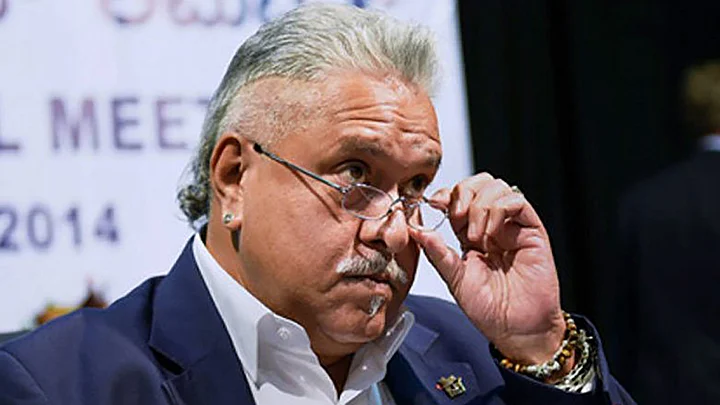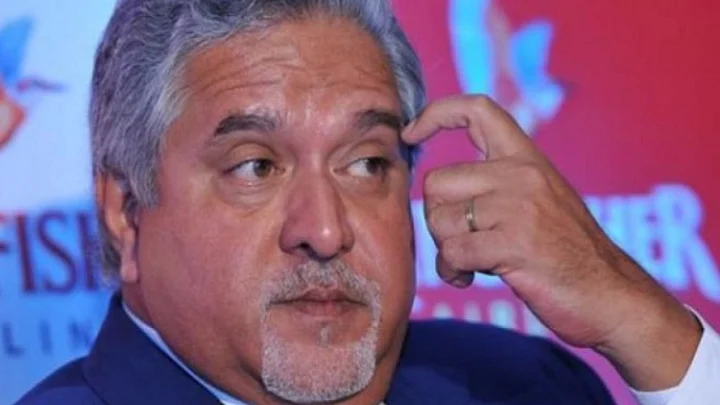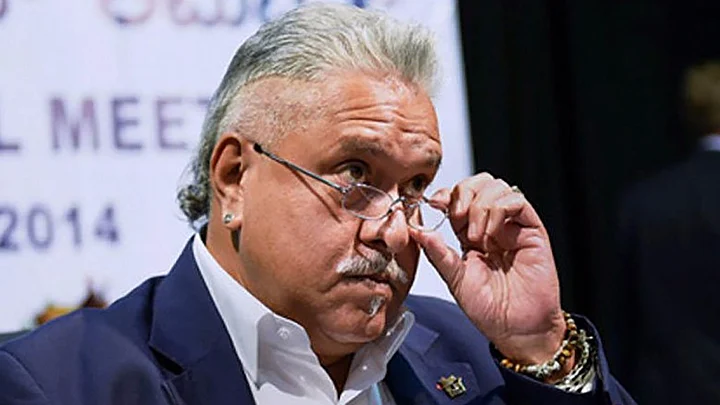Fugitive liquor tycoon Vijay Mallya, who has represented Karnataka twice in the Rajya Sabha, on Friday, 27 April, said it was his democratic right to vote in the state Assembly polls, but lamented that he cannot travel to India, where he is wanted to face charges of fraud and money laundering.
The 62-year-old former businessman parliamentarian had first represented Karnataka as the member of the Upper House of Parliament between 10 April 2002 and 9 April 2008.
“It is my democratic right to vote in Karnataka, but as you know I am here and cannot travel”, he told reporters outside the Westminster Magistrate's Court in connection with a hearing in his ongoing extradition trial, to rule if he can be extradited to India to face charges for financial irregularities involving an amount of around Rs 9,000 crores, as well as money laundering cases.
He was re-elected to the Rajya Sabha from the southern state on 1 July 2010 and resigned on 5 May 2016, before the expiry of his term on 30 June 2016. He is in the UK since March 2016.
Mallya Appears for Extradition Hearing
Mallya was back in a UK court on Friday, 27 April, for a hearing in his ongoing extradition trial. He is currently on a 6,50,000 pounds bail since his arrest on an extradition warrant by Scotland Yard in April last year. "It's another day in court", Mallya told reporters.
Chief Magistrate Emma Arbuthnot is set to consider some additional material sought from the Crown Prosecution Service (CPS), arguing on behalf of the Indian government, hear closing arguments, and set a timeline for a verdict in the case – which is expected by next month.
At the last hearing in the case on 16 March, the judge had noted that it was "blindingly obvious" that rules were being broken by Indian banks which sanctioned some of the loans to the erstwhile Kingfisher Airlines owned by Mallya.
“There are clear signs that the banks seem to have gone against their own guidelines (in sanctioning some of the loans)”, she said, “inviting” the Indian authorities to explain the case against some of the bank officials involved because that relates to the “conspiracy” allegations against Mallya.
At the end of that hearing, the judge had indicated her decision on the admissibility of evidence would go in favour of admitting some material and excluding some affidavits, which she said did not pertain to the prima facie case of fraud.
Mallya's counsel, Clare Montgomery, had also argued that evidence which was claimed as a "blueprint of dishonesty" by the CPS was in fact a privileged interaction between Mallya and his lawyer about "legal advice in clear contemplation of litigation" and hence should be inadmissible.
The judge said she was still "on the fence" about admitting that correspondence. Friday's hearing comes days after the Indian government's High Court appeal against a previous Westminster Magistrates' Court extradition ruling that had been denied.
UK-based Sanjeev Kumar Chawla, wanted in India as a key accused in the cricket match-fixing scandal involving former South African captain Hanse Cronje in 2000, had been discharged in October last year on human rights grounds over severe conditions in Delhi's Tihar Jail, where the accused was to be held on being extradited.
District Judge Rebecca Crane had based her verdict to discharge Chawla largely upon the testimony of Dr Alan Mitchell, former head of healthcare at the Scottish Prison Service and an elected member of the European Council's Committee for the Prevention of Torture (CPT).
Mallya's defence team has previously deposed the same prisons expert in his extradition case, who told Judge Arbuthnot during the course of the trial that conditions in all Indian jails are "far from satisfactory".
During the last hearing in the case in March, CPS barrister Mark Summers reiterated that the Indian government had provided further clarifications related to availability of natural light and medical assistance at Barrack 12 of Mumbai Central Prison on Arthur Road, where Mallya is to be held if he is extradited from the UK.
The trial, which opened at the London court on 4 December last year, is aimed at laying out a prima facie case of fraud against Mallya.
It also seeks to prove there are no “bars to extradition” and that the tycoon is assured a fair trial in India over his now-defunct Kingfisher Airlines.
The CPS, representing the Indian government, has argued that the evidence they have presented establishes "dishonesty" on the part of the businessman and that there are no bars to him being extradited from the UK to face Indian courts.
Mallya's defence team has deposed a series of expert witnesses to claim he had no "fraudulent" intentions and that he is unlikely to get a fair trial in India.
If the judge rules in favour of the Indian government, the UK home secretary will have two months to sign Mallya's extradition order.
However, both sides will have the chance to appeal in higher courts in the UK against the Magistrate’s Court verdict.
CBI Gets Boost on Evidence Admissibility
The UK court today admitted the bulk of the evidence submitted by the CBI against Vijay Mallya in connection with his ongoing extradition trial, giving a boost to India's efforts to bring back the embattled liquor baron to face charges of fraud and money laundering amounting to around Rs 9,000 crore.
The 62-year-old flamboyant businessman, who appeared in the Westminister Magistrate's Court here, had his 650,000 pounds bail extended until the next date of hearing on 11 July.
When the court reconvenes, oral submissions will be made on closing arguments to be submitted in writing to Judge Emma Arbuthnot over the next two months. The judge is then expected to indicate plans for a verdict in the case at the next hearing.
"We have just asked for a final hearing to make our closing submissions orally. Nothing wrong with that, no delaying tactics. On the contrary, we requested an earlier date than what was being discussed," Mallya told reporters on being asked about "delays" in the case on his way out of the court.
During today's hearing, the judge initially seemed reluctant to allow another hearing, being requested by Mallya's defence team.
"So, you want a hearing for the press," she said in response to Mallya's counsel Ben Watson, pointing out the significant public and media interest in the case.
"That is extremely unfair," responded Watson, adding that the defence team needed an opportunity to respond to some of the additional material presented by the Crown Prosecution Service (CPS), on behalf of the Indian government.
The CPS told the court that the Indian authorities had been engaged in the extradition process in a "spirit of real cooperation" and had provided the conspiracy note and schedule of notional charges as directed at the previous hearing in March.
The judge classified the additional material handed in by the Indian side as "very helpful indeed" and said that it is all admissible, except an email which the defence has claimed was privileged interaction between Mallya and his lawyer about "legal advice".
"I am still sitting on the fence on that," she said.
The CBI has submitted a detailed set of documents to the UK court, which includes its case of conspiracy against former IDBI Bank deputy managing director B K Batra, who was referred to in court as a new "villain" of sorts in the case.
As per the Indian authorities' case of conspiracy, Batra reportedly colluded with Mallya in sanctioning some of the loans to the now-defunct Kingfisher Airlines without following due diligence procedures.
(The Quint is now on WhatsApp. To receive handpicked stories on topics you care about, subscribe to our WhatsApp services. Just go to TheQuint.com/WhatsApp and hit Send.)
(At The Quint, we question everything. Play an active role in shaping our journalism by becoming a member today.)


